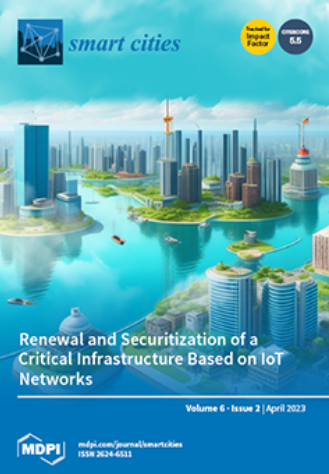大流行后时代城市服务数字化和智能化增强城市韧性——以朝觐城市麦加为例
IF 5.5
Q1 ENGINEERING, ELECTRICAL & ELECTRONIC
引用次数: 1
摘要
COVID-19大流行严重扰乱了人类的社会经济活动,对城市系统产生了持久的影响。因此,越来越多的学者关注于探索城市规划战略和工具如何帮助创建弹性城市。在沙特阿拉伯,朝圣城市麦加一直面临着一年一度朝圣期间管理人群的挑战,但由于封锁和社交距离措施,麦加被遗弃了。为了迅速恢复城市的社会经济和朝圣活动,部署了一套数字工具和通信技术来管理人群并加强社交距离,以尽量减少COVID-19病毒的传播。本研究探讨了数字化和智能化在城市复兴中的作用,以及文脉在城市韧性建设中的重要性。本研究采用桌面研究和案例分析的方法,突出城市向新常态的转变和未来智能技术的发展。智能解决方案为减少疫情影响和重启麦加经济提供了宝贵支持。虽然大多数活动已经恢复,但一些设施和服务仍处于负荷不足状态。城市服务的数字化和智能化可以在改善服务提供和城市韧性方面发挥重要作用。本文章由计算机程序翻译,如有差异,请以英文原文为准。
Digitalization and Smartification of Urban Services to Enhance Urban Resilience in the Post-Pandemic Era: The Case of the Pilgrimage City of Makkah
The COVID-19 pandemic has significantly disrupted human socioeconomic activities, leaving an everlasting impact on urban systems. As a result, there is a growing scholarly focus on exploring how urban planning strategies and tools can help create resilient cities. In Saudi Arabia, the pilgrimage city of Makkah, which has always faced the challenge of managing crowds during the annual pilgrimage, was left deserted due to lockdowns and social distancing measures. To quickly revive socioeconomic and pilgrimage activities in the city, a set of digital tools and communication technologies were deployed to manage crowds and enforce social distancing to minimize the spread of the COVID-19 virus. This study examines the role of digitalization and smartification in reviving the city and the importance of context in building urban resilience. This study used desktop research and case study analysis to highlight the transformation to the new normal and the development of future smart technologies for the city. Smart solutions provided valuable support in reducing the impacts of the pandemic and restarting Makkah’s economy. Although most activities have been restored, some facilities and services are still operating below capacity. Digitalization and smartification of urban services could play a major role in improving service delivery and urban resilience.
求助全文
通过发布文献求助,成功后即可免费获取论文全文。
去求助
来源期刊

Smart Cities
Multiple-
CiteScore
11.20
自引率
6.20%
发文量
0
审稿时长
11 weeks
期刊介绍:
Smart Cities (ISSN 2624-6511) provides an advanced forum for the dissemination of information on the science and technology of smart cities, publishing reviews, regular research papers (articles) and communications in all areas of research concerning smart cities. Our aim is to encourage scientists to publish their experimental and theoretical results in as much detail as possible, with no restriction on the maximum length of the papers published so that all experimental results can be reproduced.
 求助内容:
求助内容: 应助结果提醒方式:
应助结果提醒方式:


